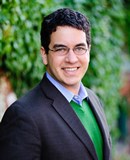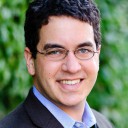 I’ve been a ‘next gen’ donor for 13 years, ever since I began getting involved in philanthropy after discovering as a graduate student that my family had a small foundation. Slowly philanthropy began to permeate every part of my life. Even as I continued working as a community organizer it emerged as part of my academic work, where I began to research the impact of philanthropy on policy change; as a volunteer, I became a deeply engaged board member of several foundations. Finally, in 2010, I shifted my professional work into philanthropy when I became the first full-time executive director of Bolder Giving. So when I was invited to serve as the guest editor for this Alliance special feature exploring the dynamics of ‘next gen’ philanthropy globally, I leapt at the chance.
I’ve been a ‘next gen’ donor for 13 years, ever since I began getting involved in philanthropy after discovering as a graduate student that my family had a small foundation. Slowly philanthropy began to permeate every part of my life. Even as I continued working as a community organizer it emerged as part of my academic work, where I began to research the impact of philanthropy on policy change; as a volunteer, I became a deeply engaged board member of several foundations. Finally, in 2010, I shifted my professional work into philanthropy when I became the first full-time executive director of Bolder Giving. So when I was invited to serve as the guest editor for this Alliance special feature exploring the dynamics of ‘next gen’ philanthropy globally, I leapt at the chance.
First I should explain why I use quotations when I refer to ‘next gen’. It’s a phrase that has bothered me since I first got involved in philanthropy because it’s so permeable.
Who are the ‘next gen’?
With traditional generations we have start and end years (for example US Baby Boomers are born between 1946 and 1964); we have no such boundaries for ‘next gens’. While we know that historically philanthropists, especially those with significant wealth, have tended to step into the role of donor later in life, more and more people in their twenties, thirties and forties are getting involved in philanthropy. Several factors are behind this: the rising cultural and societal acceptance and support of giving across the globe; faster wealth accumulation among younger generations through technology-oriented businesses; and in the US and Western Europe the largest intergenerational transfer of wealth ever seen.
But it begs the question of who we are talking about when we refer to the ‘next gen’. When do you get too old to be ‘next gen’? For general purposes, I would say that ‘next gen’ refers to young donors from their early twenties to early forties, but there is significant variation among donors across this age span and no hard-and-fast rule. Amanda Bloch from South Africa echoes this uncertainty when she writes: ‘I am not sure that I fit into the category of old generation or next as I have just turned 40; perhaps current generation would be a better definition.’
The first studies of ‘next gen’ donors
One thing that particularly drew me to work on this Alliance special feature was the idea of exploring in more depth the tantalizing results from the first two in–depth studies of ‘next gen’ donors: the Future Stars of Philanthropy report released in 2012 by the Charities Aid Foundation (CAF), based on a survey of almost 1,500 young donors from across North America, Europe and Asia Pacific countries; and the NextGenDonors report of the Johnson Center for Philanthropy at Grand Valley State University and 21/64, published in early 2013, based on a survey of 310 high-capacity young donors from the US and 30 in-depth interviews. The article written jointly by the authors of these two studies in this special issue of Alliance offers a jumping off point to explore the similarities and differences among ‘next gen’ donors globally, as do the responses from young donors themselves and the interviews and other analyses you’ll find in the coming pages.
As I read these final pieces, I found myself nodding regularly in agreement with them and also occasionally noticing places where my admittedlybiased experiences were different from the findings from these surveys, and the interviews and responses from young donors more diverse than in my personal circle.
Although it is always challenging to offer any generalizations about a global community as diverse as ‘next gen’ donors, I will nevertheless offer a couple of observations I think may constitute defining differences between ‘next gen’ donors and their older counterparts.
Jason Franklin is executive director of Bolder Giving, a US-based non-profit that works globally to inspire people to give. He is a Lecturer on Public Administration and a doctoral candidate at New York University, where he focuses on the role of philanthropy in policy change. He is a board member of the North Star Fund, Proteus Fund, Solidaire Network and 21st Century School Fund. Email jason@boldergiving.org






Comments (0)